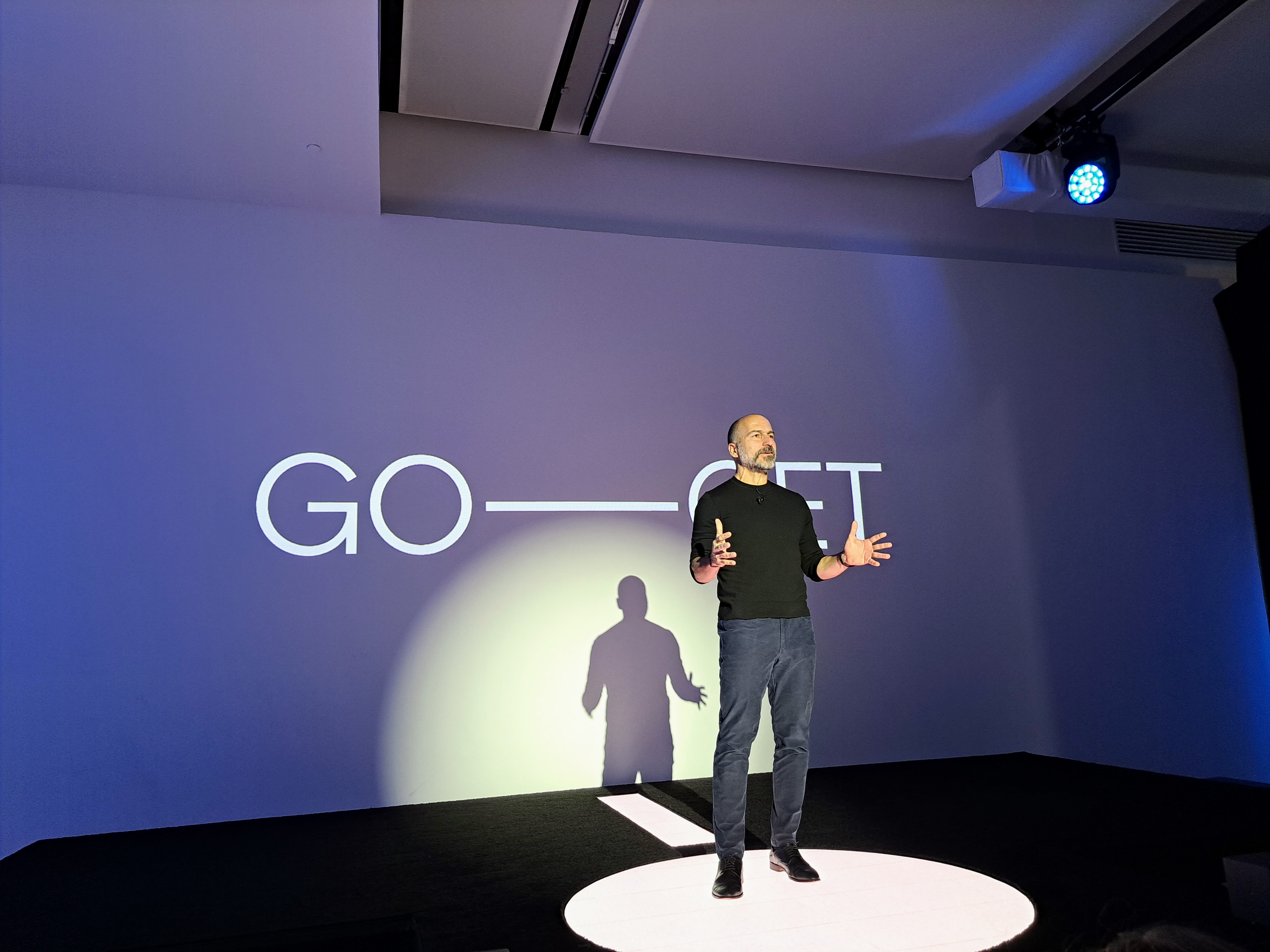How Uber is trying to create ‘stickiness’ for its app
Ride-hailing is back. But Uber’s looking to become more than a one-stop shop for booking rides.
Growth — through products and expanded consumer groups — was the connecting thread at Uber’s Go-Get event this Wednesday in New York City, where the company announced a slew of new additions to its platform that, in many cases, don’t have anything to do with hailing a car, really. Uber launched a private chartered boat service in Mykonos, Greece, for instance. Uber also rolled out group ordering for Uber Eats and opened its app to teens, a bet on hooking a whole new generation of users.
The motivators behind those moves aren’t necessarily the same. But they do both point to the perennial pressure on Uber to find ways to acquire new — and retain old — users.
“We want to be able to be a platform for all mobility needs,” Camiel Irving, the head of rides at Uber, told TechCrunch in an interview.
She made the point that features geared toward families — whether foreign boat tours or group ordering — are a logical step for a company focused on organic growth. Families, after all, control quite a lot of spending across the world, so it’s sensible to cater to their needs.
“Our aspiration is for people to be able to go anywhere and get anything,” Irving said.
That appears to be a winning strategy. In the first quarter, Uber beat analyst expectations as both gross bookings and revenue rose.
However, as TechCrunch reporter Rebecca Bellan noted recently, it’s not clear from Uber’s balance sheet how much the company invests in the myriad products that come out of its Go-Get launches — nor how successful they are at driving revenue. The updates and new app features probably cost the company a lot less than the many moonshots it’s since abandoned.
On a boat
So why boats? I asked Jen You, the head of product for rides at Uber. Uber’s not new to the boat-hailing business — it operates a fleet of ferries in London on the Thames in partnership with a third party. But the London service is geared mostly toward commuters; Uber’s new Mykonos venture is purely for private bookings.
Post-pandemic travel trends played a role, You said.
“Our thought was, since so many travelers are going to Greece this year, why not stand up a product?” she said. “It’s one of the hottest vacation destinations.”
She’s not wrong. Greece expects more than a million travelers this year, due in large part to more direct flights from the United States.
It’s a low-risk pilot for Uber, since it’s partnering with local boat operators rather than spearheading its own operation. You characterized it as a way to funnel demand to local businesses — while making money, of course.
“We want to make sure that we’re innovating in the mobility space,” You said, “and being able to switch rides is something that we’re uniquely able to do — being able to help manage travel experiences across different modalities.”
Grouping groceries
What about group ordering for groceries? Where does that fit into Uber’s broader growth strategy? In prepared remarks at Wednesday’s event, CEO Dara Khosrowshahi characterized the feature as a more “elegant,” simpler way to handle one of life’s more predictable chores: restocking the fridge.

Image Credits: Kyle Wiggers / TechCrunch
“[With group ordering, you] don’t have to go through the whole awkward phase of figuring out who owes what or whether you’re gonna get paid back on that,” he said. “We make it incredibly easy.”
Ease of use and “stickiness” is important in a business like grocery delivery, which is costly to run and rife with competition. Uber has spent billions of dollars on acquisitions, like that of Careem, Cornershop, Postmates and Drizly, but rival Instacart maintains the lion’s share of the market. According to Insider Intelligence, it’ll capture 73% of U.S. digital grocery sales in 2023.
That being said, things are beginning to look up for Uber’s various forays into delivery. Uber’s delivery unit turned profitable for the first time in February 2022, and Insider Intelligence estimates that Uber’s share of digital grocery sales will grow 0.7% next year from 7.2% to 7.9%.
In addition to (optionally recurring) group ordering, Uber’s introducing nice-to-haves like custom ordering options and suggested replacements — allowing customers to specify off-menu items and recommend substitutes for out-of-stock products. Competitors like Instacart have offered options along those lines for some time. But Uber’s playing for loyalty — not expedience.
“It’s really important to us for consumers to feel like they can find whatever they want to find,” Irving said. “At the end of the day, this is just something that we hope is useful, and helpful, to people who have to use it.”
Looking to teens
Uber is also looking to grow its consumer base by turning to a younger generation.
At the event, the company launched teen accounts, allowing users aged 13 to 17 to create accounts for ride-hailing and delivery in more than a dozen cities across the U.S. and Canada. Teen users are matched only with “highly rated, experienced” drivers and parents can live track trip progress, Uber says, or contact Uber’s support team on behalf of their teen.
Back in 2017, Uber tried some early pilots for creating teen accounts. But they weren’t a priority — perhaps because the company was under less pressure to find new avenues for growth.
Will teens prove to be a profitable new pool of customers? Time will tell. According to one source, though, transportation captures 4.6% of all teen spending — making it a meaningful, but not outsized, line item.

